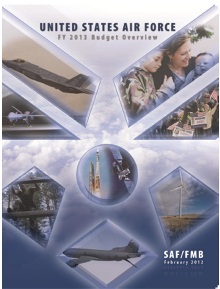
Today's dynamic global and fiscal environments require us to reassess our future military strategy and posture to determine how the Air Force will best contribute to achieving U.S. security objectives and foreign policy freedom of action. We must balance our operational focus on winning today's fights with necessary investments for the future and preserve the personnel, training, acquisition, and other institutional foundations upon which our capabilities are built. The FY 2013 President's Budget request balances risk across all mission areas while retaining our Air Force core capabilities.
The United States Air Force brings four enduring and distinctive contributions to the Nation's military portfolio, each of which are critical in the new national strategy: (1) air and space control; (2) global intelligence, surveillance, and reconnaissance (ISR); (3) rapid global mobility; and (4) global strike. These four core contributions--plus our unrivaled ability to command and control air, space, and cyberspace systems--will sustain our Nation's military advantage as the Joint Force becomes smaller and as we face emerging threats in increasingly contested environments.
While today's global and fiscal environments have changed, our focus has not. The Air Force must continue to be a force capable of deterring conflict, a force capable of projecting power, and a force capable of winning wars. To meet these demands we must ensure freedom of action in air and space. Our ability to assert control in both domains allows U.S. and Coalition forces to accomplish their missions in different locations without the threat of adversary attack from above and full leverage of essential space services.